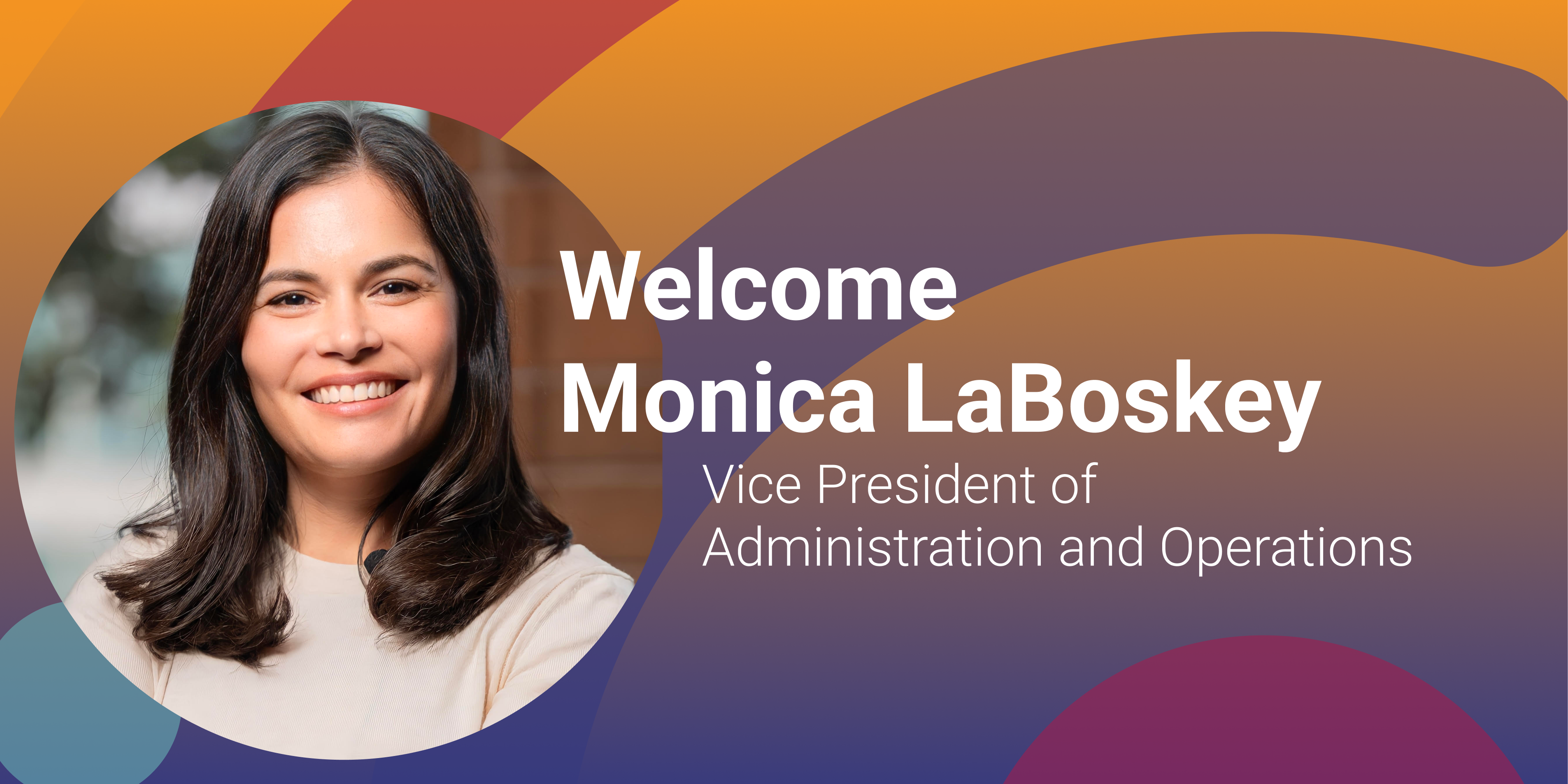We are thrilled to welcome Monica LaBoskey to Community Vision as our Vice President of Administration and Operations. Monica brings a wealth of experience and passion for the “behind-the-scenes” work that drives organizations’ missions.
In her previous role, Monica served as the Deputy Director of the Family Violence Appellate Project, where she oversaw a range of administrative, HR, IT, and compliance areas. With a background as an attorney, Monica is deeply committed to serving communities and aligning organizational operations with overarching mission, work, and strategy to sustain long-term impact.
A proud Oakland resident, Monica is actively involved in the local community and serves on the board of directors of Oakland Interfaith Gospel Choir. She completed a B.A. in African and African American Studies, Italian Studies, and Politics at Brandeis University and received her J.D. from Northeastern University School of Law. Monica also holds a Certificate in Nonprofit Executive Leadership from IUPUI Lilly Family School of Philanthropy and is currently participating in OneJustice’s Executive Fellowship program.
We sat down with Monica to get to know her more:
Q: Can you tell us a bit about your journey into administration and operations?
By trade, I’m an attorney. I was doing client-facing service for a really long time, but it wasn’t until I was running a legal program when I started to get really passionate about the back office work.
Working on the program side, I started to see the power of creating infrastructure for the really important business services like administration, operations, technology, and people services. In order to have deeper and more sustainable impact, we need to have practices that can carry us forward so we can continue to bring good services to the community.
Q: What drew you to Community Vision?
One of the really neat things about CDFIs, and Community Vision in particular, is that we are creating opportunities that are going to be generational and long-term for communities. I love that we’re combining capital resources along with support and education. Eventually, we’re out of some of these deals, but those places that are created, those programs and experiences that we’re helping the community to build, they will continue on. And that’s so cool.
Anyone, at least in the United States, can speak to our banking system and how you have to have money or history within the finance system to get the best deals within the finance system. It’s so cyclical. I’m excited to be part of an organization that’s looking at that not only from an access and a racial justice standpoint, but also creatively.
I was excited to hear about these programs around things like trying out no-interest loans or shortening applications—how do we re-imagine some of these systems? What CDFIs do and what Community Vision does is about remitting the past, and it’s also about setting up positive structures for the future.
Q: What are you looking forward to in your role?
I love administration and operations—from HR systems to streamlining processes to integrating technology. I’m also excited to be a lawyer who’s joining the organization in this role that often links with areas we need lawyers to address, like risk, governance, and compliance. I look forward to working with and learning from the Admin Ops team, and then for us to be working as a team with everyone else at the organization.
Q: What does “community” mean to you?
Community is really important to me, and I think it can mean a lot of different things. I am a proud Oaklander. I’m raising two kids here in Oakland. This is our home. There’s this thing about home and place that I think can really build community, and so that’s definitely one place I really find a source of pride and belonging. I also find a lot of community in my ethnic identities, as I’m Japanese and Jewish.
One of the cool things about finding community is that you have this thing in common, and then you also have things that are different. You learn so much about the differences and other aspects of people’s lives and who they are, and you bring that all together as well.
I love the idea that there’s not just one definition of community. You don’t just belong to one. You can create community physically or emotionally or just deep down in your soul in so many different ways.





